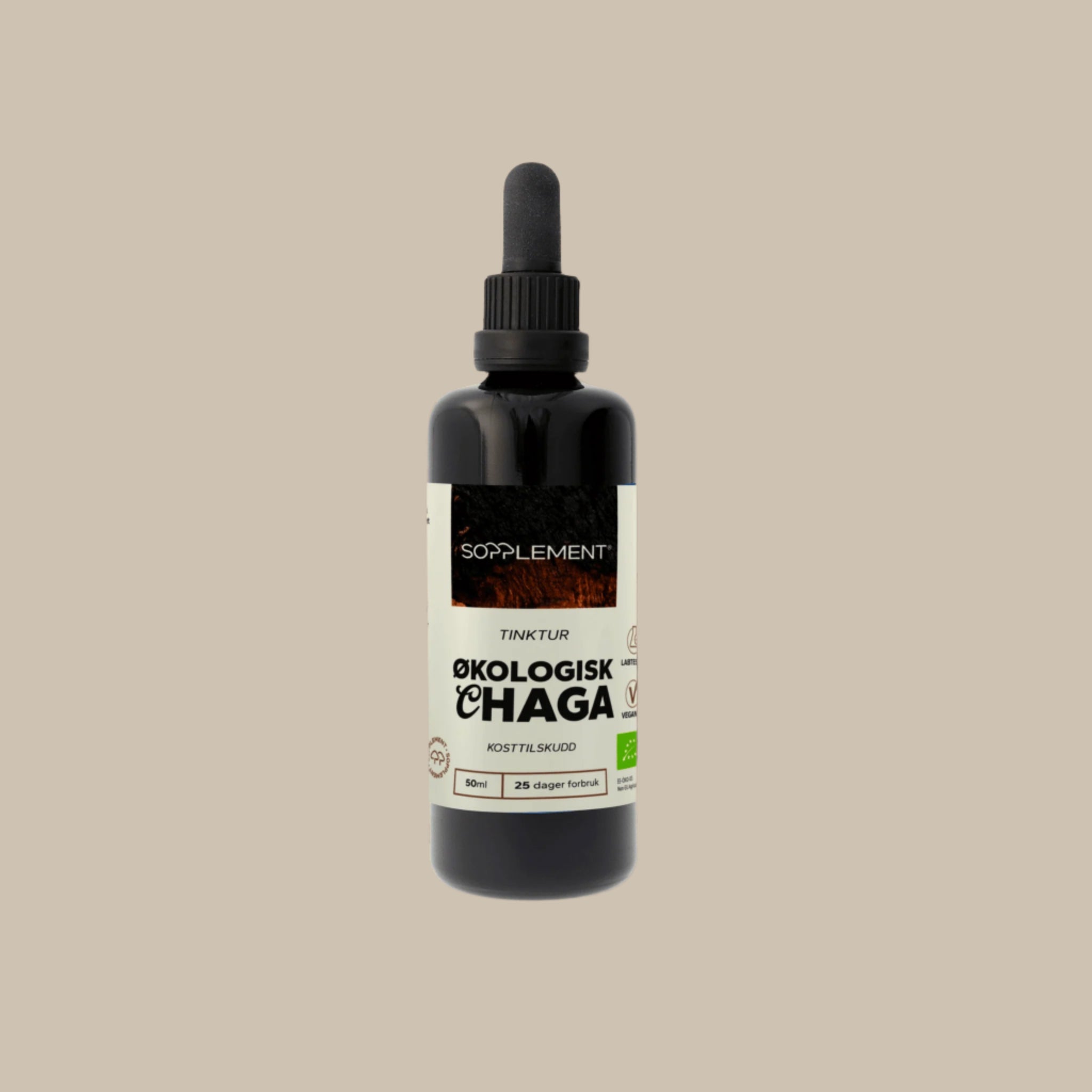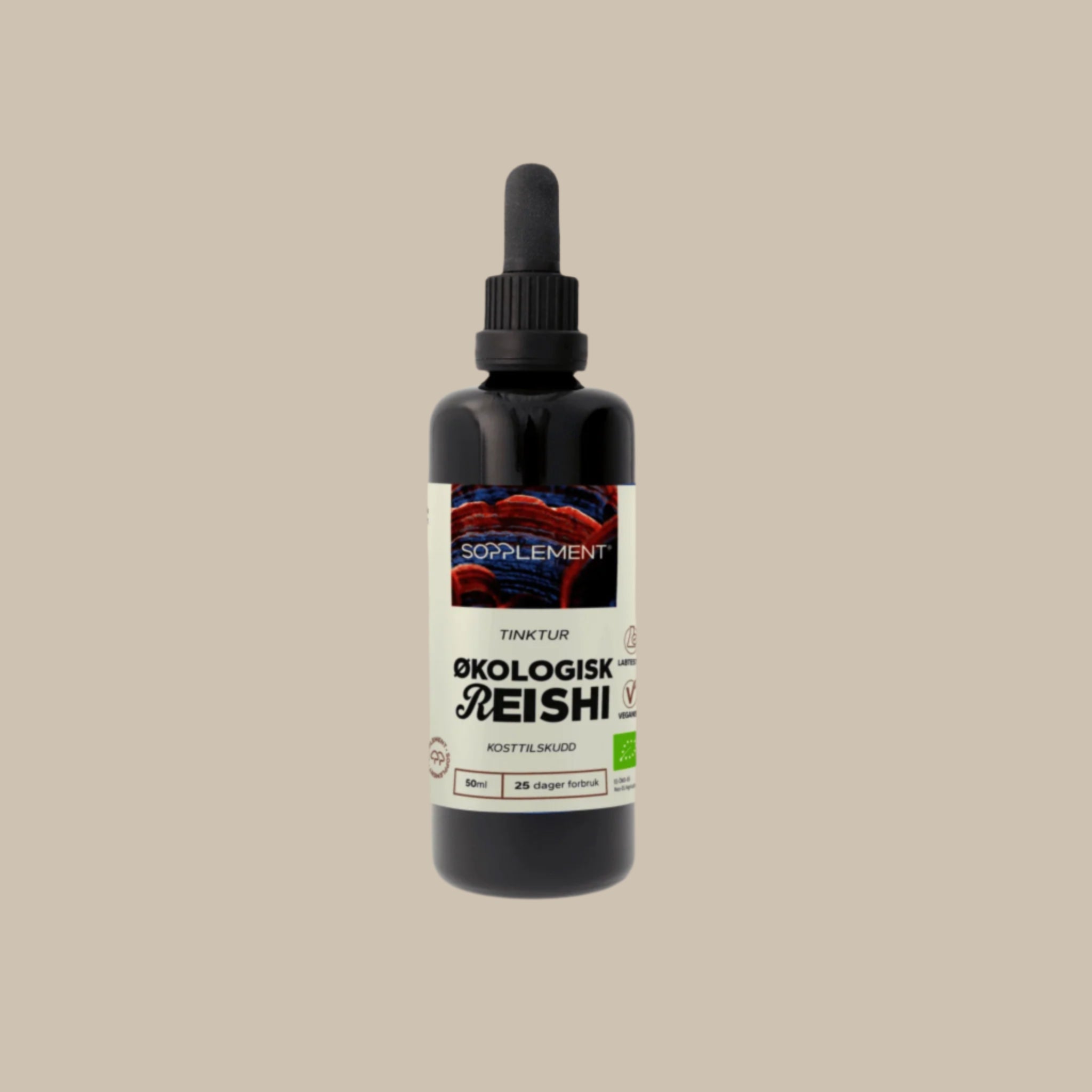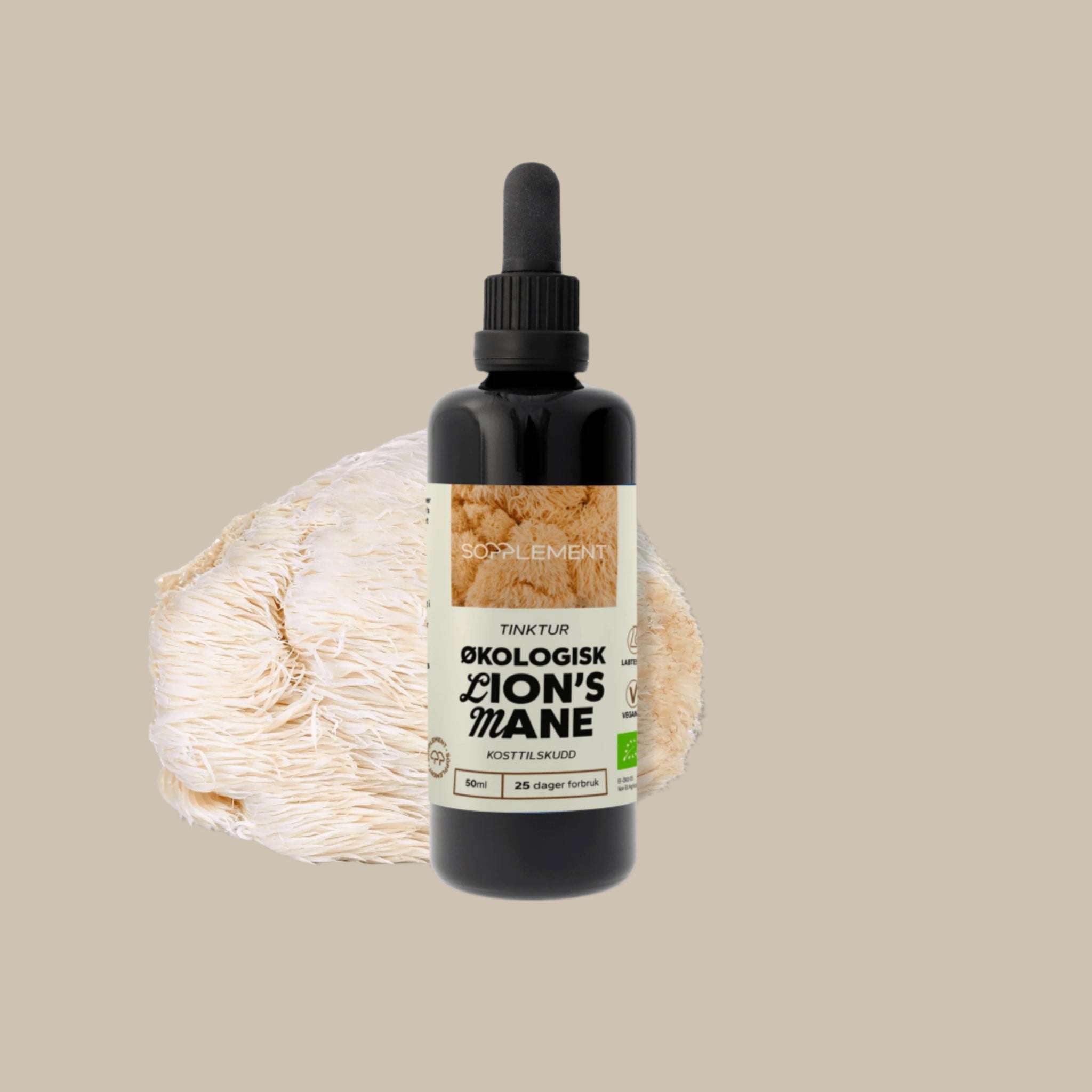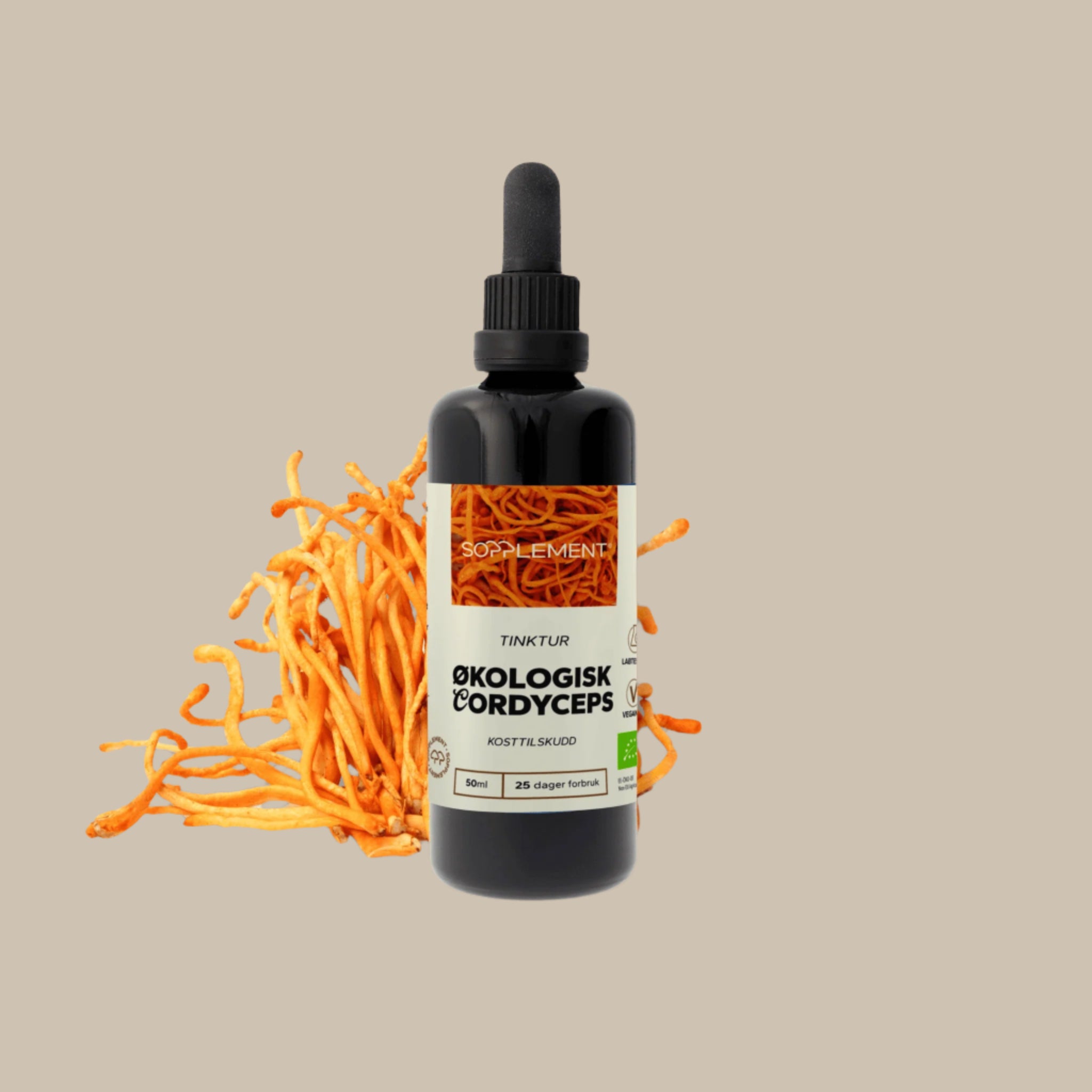
What is functional mushroom?
Functional nutrition describes how food and nutrients can help optimize the body's functions. This includes everything from gut health and immune function to mental clarity and recovery.
Functional mushrooms - a new interest in tradition
Functional nutrition is about how nutrients can support the body's own systems – not just to survive, but to function optimally. In this landscape, functional mushrooms have taken on a special place.
Functional mushrooms, or medicinal mushrooms, have been used for millennia in traditional medicine, and modern research is now beginning to uncover how they can affect immune function, brain function, energy levels, and more. But what exactly are functional mushrooms, and why are they so interesting?
What is functional mushroom?
Functional mushrooms are mushroom species that contain bioactive compounds – substances that can positively affect the body's physiological processes. They differ from common edible mushrooms in that they have traditionally been used for their health-promoting effects, not just taste and nutrition.
Examples of such mushrooms include:
• Lion's Mane (Hericium erinaceus)
• Reishi (Ganoderma lucidum)
• Chaga (Inonotus obliquus)
• Cordyceps (Cordyceps militaris and sinensis)
These mushrooms contain, among other things, beta-glucans, triterpenes, phenols and unique compounds such as hericenones and cordycepin, which give them their functional properties.
Historical use in traditional medicine
Functional mushrooms have a long history in traditional Chinese medicine (TCM) , as well as folk medicine traditions in Japan, Korea, and Siberia, among others.
• Reishi was considered a symbol of vitality and long life.
• Lion's Mane was used to support digestion and mental acuity.
• Cordyceps was used by the elderly for energy and lung function.
• Chaga , known in northern regions, was boiled as a tonic for ailments related to the stomach and immune system.
These traditions were based on observation, experience, and the transmission of knowledge through generations – long before modern analytical tools were available.
New research on functional mushrooms
Today, functional mushrooms are being studied with modern tools in biochemistry, immunology, and neuroscience. Here are some of the most well-known bioactive compounds and their effects:
Beta-glucans (immunomodulation)
Found in Reishi, Chaga, Shiitake and several others, these polysaccharides have shown the ability to regulate the immune system by activating macrophages, T cells and NK cells.
Hericenones and erinacins (nerve cell stimulation)
These substances from Lion's Mane have shown the ability to stimulate NGF (nerve growth factor) – a protein that is important for the maintenance and regeneration of neurons in the brain.
Cordycepin (energy and recovery)
Cordycepin, found in Cordyceps, has shown anti-inflammatory and antioxidant effects, and can affect ATP production in cells – the body's energy currency.
Triterpenes (Reishi)
Triterpenes have been studied for anti-allergic, anti-inflammatory, and hepatoprotective effects. They also give Reishi its characteristic bitter taste.
A growing field of research
New studies on functional mushrooms are constantly being published in reputable journals. Many of the studies have been done in vitro (in laboratory conditions) or in vivo (in animals), but more clinical studies on humans are also coming.
Functional fungi are studied today in the context of:
• Neurodegenerative diseases
• Metabolic health
• Immune support in viral infections and cancer treatment
• Stress management and sleep
There are still limitations in the knowledge base, but the direction is clear: functional mushrooms are a growing area of research at the interface between nutrition, medicine and biotechnology .
Functional mushrooms as part of a holistic understanding of health
Functional mushrooms are not a cure, and should not replace medical treatment. However, they represent a natural and biochemically active supplement that can support the body's own processes - especially in the areas of immune defense, cognitive function and recovery.
The most important thing is to understand that such supplements work best as part of a holistic lifestyle – along with good nutrition, exercise, sleep and stress management.
Summary
• Functional mushrooms are mushroom species with documented bioactive compounds.
• They have been used in traditional medicine for thousands of years.
• Modern research is beginning to confirm many of their claimed effects.
• The substances in mushrooms can support the immune system, nervous system, energy and balance.
• The use of functional mushrooms should be knowledge-based and holistic.



